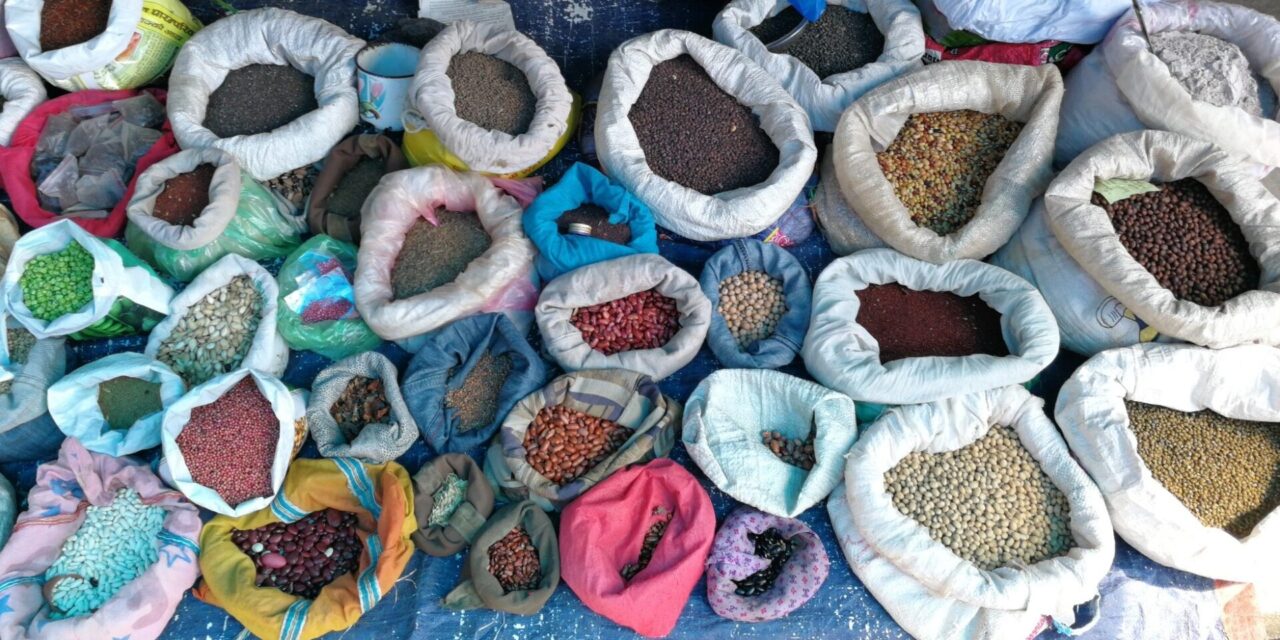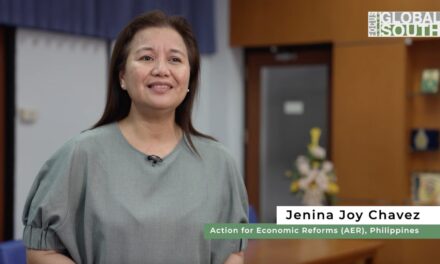26 May 2020
Debate on CPTPP in Thailand
The Comprehensive and Progressive Agreement for Trans-Pacific Partnership (CPTPP)[i] is a glaring issue again in Thailand since the government attempted to propose that the cabinet consider joining the trade deal.[ii] On the one hand, the government led by the Department of Trade Negotiations claimed that joining CPTPP will increase Thailand’s gross domestic product (GDP) by 0.12%, or THB 13.3 billion, an increase of 5.14% in foreign investment, or THB 148 billion, and exports up to 3.47%, or THB 271 billion.[iii] The CPTPP supporters envisioned that the pact will boost the Thai economy and gain competitive advantage thanks to geopolitical and geoeconomic tendencies in the post-COVID era where regional economic integration and supply chains will be viable, replacing the multilateral trading system under the World Trade Organization (WTO).[iv]
On the other hand, the Pacific trade deal has forcefully been opposed by civil society groups by over its adverse impacts on farmers’ rights over seeds and breeding, food security, and access to medicine. In addition, these groups have raised concerns over the investor state dispute settlement (ISDS) mechanism that will undermine the public interest with the government losing its ability to protect consumers from imported products with health risks such as liquor products, cosmetics and genetically modified foods. In terms of access to markets, the opponents argue that Thailand will not gain many benefits from new markets as Thailand has already had bilateral free trade agreements with 9 of 11 member countries, except Canada and Mexico.[v]
The FTA Watch[vi] launched a #NOCPTPP campaign on social media to countervail the attempt of the Thai government in joining the CPTPP. The campaign garnered public attention and subsequently put pressure on the government to not put forward the CPTPP agenda for now.[vii] The group urged the government to engage the civil society into decision-making and study the impacts of the trade deals. In addition to the social pressure, it seems that business sectors and political parties in the coalition government have incompatible views on the CPTPP.
CPTPP and Looming Impacts on Food
In the globalized economy, local food production systems have been integrated into the global agriculture industries and food supply chains, dominated by big food corporations, through numerous trade deals. Thus, a country loses its independence on food production and supply at the national level. Availability, adequacy and accessibility of food at a national level become precarious when a crisis – like the pandemic of COVID-19 – occurs.
The COVID-19 crisis tells us to reconsider any trade deals that the Thai government plans to engage with so as to reduce dependency on external food markets and free from corporate control of food and agriculture. In this case, CPTPP will pose a greater risk to food sovereignty in Thailand. As a country member of the pact, one is required to adopt the UPOV1991 (International Convention for the Protection of New Varieties of Plants) and amend the national plant variety law in compliance with the UPOV91. UPOV provisions will exacerbate food insecurity and undermine the rights of peasants by increasing the monopoly of corporate agribusinesses over seeds and enabling biopiracy.[viii] Plant breeders at big corporations will gain 20-25 years of protection for breeder’s right whereby they control breeds, seeds and plant varieties.[ix] In this way, the rights of farmers to seeds will be deprived of. While farmers lose the right to save, reuse, sell and exchange seeds, a small number of corporate agribusinesses have the power to increase the price of seeds. With this scenario, small-scale farmers will bear the cost of expensive seeds, rising 2-6 times, and more expensive food will be the fallout.
Rethinking Pacific Trade Deal
The COVID-19 crisis shatters the primary elements of the peoples’ right to food. When people encounter unprecedented shocks, people with reduced purchasing power lose their ability to access adequate food. It indicates the fragility of the existing food regime and globalized economy and scrutinizes how people should reduce dependency on corporate control in food production and supply.
It is time to increase domestic food production and build food sovereignty whereby guarantees the right of peoples to healthy and culturally appropriate food produced through ecologically sound and sustainable methods, and the right to define their own food and agriculture systems. In this way, food sovereignty will be expanded from the household level, the community level and eventually to the national level.
To build self-reliance domestically to a crisis, community practices in Thailand during the COVID-19 pandemic illustrate alternatives to trade deals.
Local food systems are the primary sources of food production and consumption for people. Localizing food systems nourish peoples’ subsistence during the crisis. Small-scale food producers should be guaranteed the right to common properties, such as land, water and forest whereby people can pursue sustainable livelihoods and well-being as well as becoming resilient to a crisis.
Seeds should be shared among small-scale food producers to build food sovereignty. They have the right to reserve, replant, exchange, and sell farm-saved seeds thereby increasing plant varieties and biodiversity.[x] In this sense, small-scale food producers oppose trade deals that violate the farmers’ right to seeds and bring about the increase of corporate control over seeds.
People should prioritize food production for primary consumption at the household level which will be a safety net during a crisis. This practice should also be promoted among urban households where city people can grow vegetables and herbs in kitchen gardens.
Alternative platforms of food supply chains should be promoted to reduce dependency on retail corporations, dominated by the monopoly of corporate food production and supply. As can be seen during the COVID-19 crisis, local communities have initiated numerous mechanisms such as rice-for-fish exchange schemes between farmers and fisherfolk, community kitchens, community food bank, and consumer supported agriculture.
Cultural values and relationships, including reciprocity, equal redistribution and subsistence security are a fallback mechanism during a calamity. For example, the Southern Peasants’ Federation of Thailand (SPFT), a group of peasants and landless workers in Surat Thani Province, can consume food from what they grow on their collective farmland and share with needy people in their communities.
[i]The Comprehensive Progressive Agreement for Trans-Pacific Partnership (CPTPP) is the third largest free trade deal in the world, signed in 2016 with 11 country members, consisting of Japan, Australia, New Zealand, Brunei, Malaysia, Singapore, Vietnam, Chile, Peru, Mexico and Canada.
[ii]Cabinet to mull joining Pacific trade pact, available on https://www.bangkokpost.com/business/1907970/cabinet-to-mull-joining-pacific-trade-pact
[iii]Chief negotiator insists CPTPP good for the country, available on https://www.bangkokpost.com/business/1908810/chief-negotiator-insists-cptpp-good-for-the-country
[iv]Thailand needs Pacific trade treaty, available on https://www.bangkokpost.com/opinion/opinion/1910700/thailand-needs-pacific-trade-treaty
[v]What Deputy PM Somkid didn’t say: disasters loom large as Thai government eager to join CPTPP, available on https://www.biothai.org/node/1448
[vi]Established in 2003, FTA Watch is an independent monitoring group on trade-related issues, including agriculture, access to medicines, intellectual property rights, consumers’ rights, investment and privatization of state enterprises.
[vii]Cabinet split over trade pact, available on https://www.bangkokpost.com/business/1908700/cabinet-split-over-trade-pact
[viii]Asia under threat of UPOV 91, available on https://www.grain.org/en/article/6372-asia-under-threat-of-upov-91
[ix] Ibid, https://www.biothai.org/node/1448
[x]Agricultural and Food Solutions towards crises, available on https://www.facebook.com/biothai.net/posts/2925381107500391 (in Thai)



![[Presentations] FTA with the EU: Opportunities or Risks for Thailand and ASEAN](https://focusweb.org/wp-content/themes/Extra/images/post-format-thumb-text.svg)






